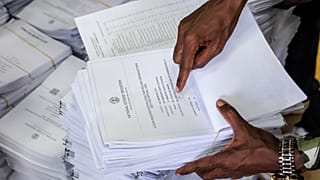USA
France, Germany, and the United Kingdom have triggered the so-called “snapback” mechanism at the United Nations, aiming to reimpose sanctions on Iran over its nuclear program. The move follows repeated strikes on Iranian atomic facilities during a recent 12-day war with Israel.
Moscow strongly rejected the action, calling it illegitimate.
Dmitry Polyanskiy, Russia’s First Deputy Permanent Representative at the UN: "So now the world is at crossroads. It's quite clear. One option is peace, diplomacy, goodwill. Normal human contact. Another option is kind of diplomacy at the barrel of the gun… The second option is clearly represented by the action that was triggered today by France, UK and Germany… This move by European countries in our view has absolutely no legal bearing because they were not implementing resolution 2231 in good faith.”
The snapback process, created under the 2015 nuclear deal, was designed to be veto-proof and is expected to take effect. If enforced, it would freeze Iranian assets, block arms sales, and restrict ballistic missile development, adding new pressure to Iran’s struggling economy.
Russia, which takes over the U.N. Security Council presidency in October, has floated a rival proposal to extend the life of the resolution underpinning the snapback mechanism — setting up a potential showdown with Europe.











01:22
Residents in the Sudanese capital welcome the government's return to the city
01:25
As Sudan marks 1,000 days of conflict, civilians continue to suffer
01:09
Trump orders US withdrawal from 66 international organisations under ‘America First’ policy
01:36
DRC, Liberia among five new non-permanent UN Security Council members
01:17
Israeli recognition of Somaliland is a 'calculated distraction,' Somali diplomat says
01:40
UN Finds dire conditions on first visit to Sudan’s el-Fasher since its fall